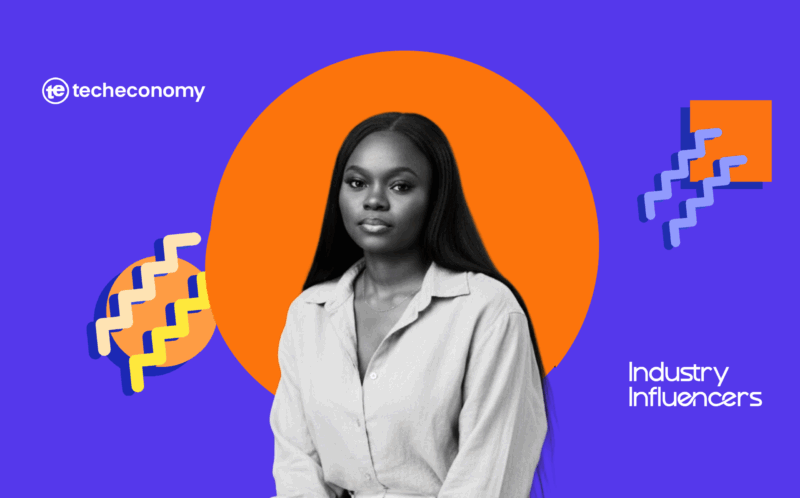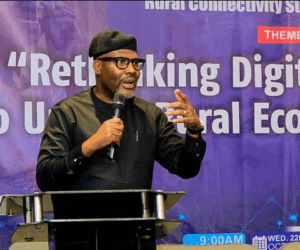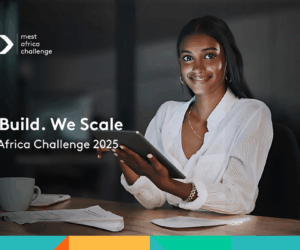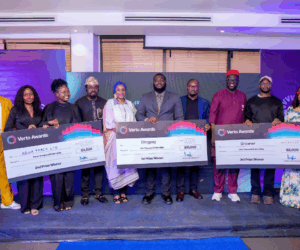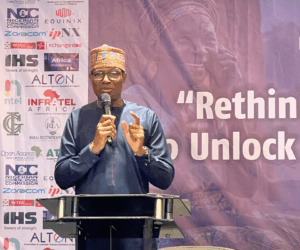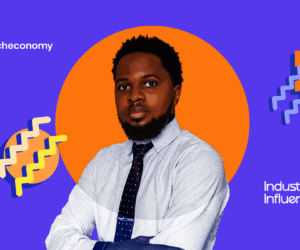In 2024, Africa’s tech sector raised $2.21 billion across 488 deals, impressive until you realise it was a 22.7% decline from the previous year.
Even with a rebound of nearly 25% in the second half, the continent still couldn’t meet up, largely because digital access is tangled in complexity and misaligned systems that don’t always reflect how Africans live and work.
Consider that 61% of sub-Saharan Africans live within broadband coverage but do not use it. Not because the internet is absent, but because access is limited by poor localisation affordability, digital illiteracy, friction-filled user journeys and at times, poor design.
That’s the battlefield where Jecinta Fabiyi has pitched her tent. For her, design is about ensuring access, trust, and opportunity in a region where the gap between technology and people can feel like a canyon. She has built her career around one core conviction, which is: technology must be human before it can be powerful.
So, when Fabiyi was named a Global Tech Hero by The Connected Awards, it was not a polite nod to another rising designer. It was a recognition of impact that is both statistical and human. The Awards, known for immortalising professionals who embody craft, impact, and legacy, singled her out as someone who consistently changes complexity into clarity.
The Making of a Hero
At Youverify, a Lagos-and San Francisco–based identity verification startup, Jecinta Fabiyi designed YouverifyOS (YVOS), a compliance and verification platform now powering over 5 million identity verification processes.
Through the simplification of KYC, KYB, and AML compliance into intuitive digital flows, she directly contributed to Youverify’s scale from 400 million to over 2 billion identities verified.
Her design of vFORM, a drag-and-drop onboarding tool, went further. What could have been another clunky enterprise form-builder became a seamless experience for businesses onboarding customers. The results?
- 300% increase in Youverify’s customer base, spreading across more than 400 banks and startups in Africa.
- 1,000% surge in application volumes, making identity verification almost routine for financial services and ride-hailing companies.
- A direct link to Youverify’s $1M seed extension funding, proving that design can, quite literally, drive investment.
These reveal how Fabiyi’s work answers one of Africa’s biggest problems: the trust deficit in digital finance and identity. In a continent where over 30 countries now enforce KYC/AML regulations, her designs are helping businesses keep pace without losing customers to bureaucracy.
Beyond Compliance: Human Impact
But Fabiyi’s influence isn’t limited to compliance dashboards. At Sidekick Health, she helped redesign the Zanadio obesity treatment platform, where patients were abandoning onboarding before accessing therapy.
Her work simplified the funnel and reduced friction, leading to a 10% increase in visitor-to-signup conversions and a 12% growth in signups-to-activation. These numbers translate into something no spreadsheet can fully capture, more patients accessing life-changing treatment.
At Wunder Mobility, she shaped fleet management dashboards and rider experiences that made shared transport more reliable and scalable. In a continent struggling with urban congestion, such design work nudges cities closer to sustainable mobility.
Recognition Rooted in Impact
Her recognition as “Woman in Tech of the Week” by The Stack Journal and her feature in Daily Times Nigeria did not come from rhetoric but from measurable results. And now, with her new badge as a Global Tech Hero, she joins a circle of technologists celebrated for what they build and how their work ripples across communities.
The Connected Awards describe their honourees as “leaders whose work bridges the gap between complexity and clarity, between people and services, and between potential and lasting impact.” Jecinta Fabiyi fits that description without caveat. She has shown that design is not decoration, it is infrastructure. It determines whether millions of Africans can access services or remain excluded.
More than a Designer
Away from her corporate impact, Jecinta Fabiyi mentors junior designers, supports career switchers, and publishes free resources in the Figma Community, already used by 1,000+ designers. Her talks on accessibility, inclusivity, and design KPIs have equipped professionals to think beyond aesthetics and focus on outcomes. And on LinkedIn and Substack, she shares insights that demystify the tech industry for the next generation of creatives.
Why This is Important
In African tech, funding is slowing, but adoption is growing. Emerging markets like Uganda (+304% growth in VC funding) and Tanzania (+108%) are proving that the future is not confined to Nigeria, Kenya, Egypt, or South Africa. However, the continent still struggles with high digital drop-off rates, compliance barriers, and trust issues.
This is why Fabiyi’s story is important. She represents a new kind of African tech leader, one who sees design not as the finishing touch but as the foundation. One who treats every interface as a bridge between ambition and reality. And one who insists that technology must include everyone, or it has failed.
As she continues to build products across industries, the Global Tech Hero award can’t be limited in description as a career highlight, but more like a milestone in an ongoing mission, which is to make digital experiences simpler, safer, and more inclusive for millions.

